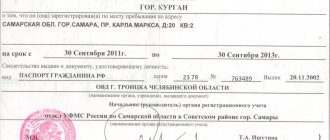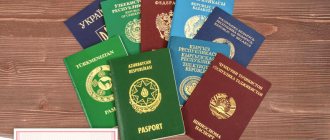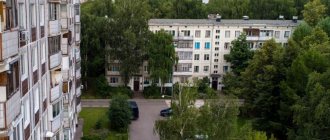Place of stay
This is a place where a citizen stays temporarily for no more than 90 calendar days. Such places of temporary stay (temporary residence) include:
- Sanatorium-resort complexes.
- Property purchased in another city/region.
- Hotels, guest houses, hotels.
In such places, a citizen can work, stay and live without any penalties from the state, if he has not exceeded the above period of 90 days.
Responsibility for the residence of foreigners not at the place of registration
The right to choose a place of residence for foreigners and stateless persons is regulated by the Federal Law of July 18, 2006 No. 109-FZ on migration registration (hereinafter referred to as the Law on Migration Registration). So, in paragraphs. 2 and 3 tbsp. 6 of the Law on Migration Registration refers to the need to register these persons if they:
- temporarily and permanently reside in the Russian Federation;
- temporarily stay in the country, for example, for tourism purposes.
The procedure for registration is established in Decree of the Government of the Russian Federation dated January 15, 2007 No. 9 (hereinafter referred to as the procedure for migration registration).
From the above, it becomes clear that, while providing for the obligation to register for migration, the legislator did not forget about responsibility for failure to comply.
In general, domestic legislation welcomes the residence of guests of the country in the place where they are registered, and does not encourage their desire to live outside their place of registration.
Rules for registering a foreigner
There are strict registration rules for foreigners and stateless persons. In particular, they are given 7 working days to submit an application from the date of receipt of an official residence permit or residence permit.
If they are staying in the Russian Federation temporarily, the receiving party must notify them in writing within the same period of time of arrival at their location, for example, in the case of a trip on a work invitation. Otherwise, the responsibility lies with her.
Documents are submitted at the regional police department of the Ministry of Internal Affairs. The following are attached to the application:
- passport or other document identifying the foreigner;
- residence permit or official temporary residence permit;
- documents that confirm the legal basis for using housing, for example, a lease agreement;
- receipt of payment of state duty in the amount of 350 rubles.
Copies must be attached to the originals.
Once the registration authority receives the documents, the corresponding stamp is affixed to the residence permit or residence permit on the same day.
Who is at risk of expulsion
Registration for migration is by no means a formal process. In theory, it implies not only the presence of a stamp on the document, but also the person’s residence in the specified premises.
In practice, the situation with foreigners is as follows. Suppose a foreign citizen is in a place of temporary stay or temporary residence, that is, the stay, for example, in a hotel room, is short-term. It is quite easy to identify the absence of a foreign guest, so negative consequences are inevitable.
If a foreign citizen is registered in a residential building as his permanent place of residence, then his short departure may not require re-registration. Therefore, each case is individual.
And yet, if it is determined that a foreigner has violated the rules of residence, he will bear legal responsibility. The person who prescribed it will not escape it either.
Thus, if you live in one place and are registered in another, as well as in case of other violations of migration registration by a foreigner, you will have to answer according to the following rules of the Code of Administrative Offenses of the Russian Federation (hereinafter referred to as the Code of Administrative Offenses of the Russian Federation):
| Norm of the Code of Administrative Offenses of the Russian Federation | Violation | Sanction |
| Clause 1 Art. 18.8 | Violation of migration rules (including lack of registration and residence at a different address). | A fine of 2 to 5 thousand rubles with the possibility of expulsion from the country. |
| Clause 3 Art. 18.8 | Violation of the same rules in Moscow, Moscow Region, St. Petersburg or Leningrad Region. | A fine of 5-7 thousand rubles with or without expulsion from the borders of the Russian Federation. |
| Clause 4 art. 18.8 | Repeated violation of the rules. | Fine 5-7 thousand with expulsion. |
| Clause 5 Art. 18.8 | Repeated violation of the rules while in Moscow, the Moscow region, St. Petersburg or the Leningrad region. | A fine of 7-10 thousand with expulsion from the Russian Federation. |
It is important that expulsion for repeated violation of the rules in all constituent entities of the Russian Federation, except Moscow, the Moscow region, St. Petersburg and the Leningrad region, is possible only in the form of compulsory action.
In the four regions listed above, both forced expulsion and controlled travel abroad of the Russian Federation can be used at the expense of the foreigner or the person who received him.
Responsibility of the apartment owner for registration of a foreigner living at a different address
Responsibility for registration without residence, that is, for fictitious registration, lies not only with the foreigner, but also with the owner of the apartment. And this responsibility will no longer be administrative, but criminal.
According to Art. 322.2 of the Criminal Code of the Russian Federation (hereinafter referred to as the Criminal Code of the Russian Federation), for fictitious registration of a foreigner or stateless person at the place of residence in an apartment or house, the owner faces one of the following penalties:
- a fine in the amount of 100 to 500 thousand rubles or in the amount of total income for a 3-year period;
- execution of forced labor for up to 3 years;
- imprisonment for up to 3 years.
Responsibility is also provided for fictitious registration of foreigners at the place of stay (Article 322.3 of the Criminal Code of the Russian Federation). Moreover, the sanctions are the same as under Art. 322.2 of the Criminal Code of the Russian Federation.
It is important that registration and residence at different addresses in the same city is unacceptable for foreigners, therefore both the registered person and the one who registered him are responsible for it.
If the homeowner helps in solving the crime, he will avoid criminal punishment.
Place of registration and place of permanent registration
Article 27 of the Russian Constitution states: every law-abiding citizen has the right to freedom of movement and free choice of place of residence.
Since since 1993, the term propiska has been replaced by the term registration, the place of permanent registration is, in fact, the citizen’s permanent residence address, as evidenced by the stamp in the passport.
The place of permanent residence of citizens will be:
- Private houses.
- Privatized apartments.
- Municipal apartments and dormitories.
- Service housing.
- Apartments.
- Mortgage housing.
- Boarding schools, nursing homes.
When applying for a job or study in another city, you should notify the state registration authorities about the change of residence, make the required notes in your passport and issue temporary registration at the specified new place of residence.
Responsibility for persons with whom the migrant resides
For those persons who provide migrants with the opportunity to obtain temporary registration, there is also a penalty for deceiving the state,
if it turns out that he lives at a different address than his registered one.
Responsibility is assigned for the following types of violations of migration legislation:
- a fine of 2 to 5 thousand rubles
will be imposed on the owner (if we are talking about an individual providing housing for rent); - If the registration has been issued (that is, the migrant is registered at one address and lives at another), the owner of the premises in which the registration was carried out will be subject to criminal punishment under Article 322.2 of the Criminal Code,
which, in the maximum form of punishment, provides for imprisonment for up to three years.
Penalties imposed for fictitious registration provide for the contribution of up to five hundred thousand rubles to the state treasury.
Responsibility for a migrant’s residence not at the place of his actual registration is fraught with liability for himself (from a fine to deportation),
and for the person who provided the premises for registration. For the latter, the amount of punishment will be taken into account in accordance with the severity of the act committed.
By clicking on the send button, you consent to the processing of your personal data.
Reading time: 6 minutes
The lack of registration raises many questions. But problems also arise when there is registration at a specific place of residence, but in fact the person does not live at the address indicated in the passport. In this case, you may find yourself involved in an administrative or criminal case that provides for liability for living at a location other than your place of registration.
Consequences for citizens allowed to live outside their place of registration
Russian according to Art. 19.15.1 of the Code of Administrative Offenses of the Russian Federation faces a fine for living not according to registration in the amount of 2 to 3 thousand rubles. In Moscow and St. Petersburg this amount increases to 3-5 thousand.
The liability of the owner of the premises - an individual - varies between 2-5 thousand. In Moscow and St. Petersburg it will increase to 5-7 thousand.
If the owner is a legal entity, the fine will be 250-750 thousand rubles, in cities of federal significance - 300-800 thousand.
There is a possibility that living outside the place of registration was the result of an error by the employee responsible for receiving and transmitting documents for registration at the Main Migration Department of the Ministry of Internal Affairs, for example, an employee of the passport office. Thus, an official may miss deadlines or submit documents containing false information.
If the action does not contain a criminal offense, the official will pay an administrative fine in the amount of 3 thousand to 5 thousand rubles (Article 19.15.2 of the Administrative Code).
In addition, Art. 322.2 of the Criminal Code of the Russian Federation provides for the following liability of officials for fictitious registration of a citizen of the Russian Federation:
- a fine in the amount of 100-500 thousand rubles or in the amount of the offender’s income for a 3-year period;
- punishment in the form of forced labor for up to 3 years with the possibility of deprivation of the right to perform professional duties;
- imprisonment for up to 3 years, with the possibility of deprivation of the right to perform their professional duties for up to 3 years.
What is the danger?
As a standard, people must permanently reside in the property indicated in their passport. But the address indicated in this document does not always coincide with the citizen’s place of residence. Every person has freedom of movement and choice of place to live.
Although living in another property is not a violation of the law, it can lead to some negative consequences for a citizen.
Possibility of receiving social assistance
Even when receiving various support measures from the state, it is required to prove that the person has permanent registration.
You can watch the legal basis for registering citizens and stateless persons in this video:
If there is no such registration, then difficulties arise with enrolling the child in kindergarten or school, as well as with obtaining medical care or obtaining various benefits.
If a person can confirm that he lives at his place of registration, then he can count on all types of social benefits to which he is entitled based on his status.
To do this, you need to confirm the right of residence at the place of registration, for which an extract from the Unified State Register of Real Estate confirming ownership is used, and a lease agreement or permission from the owner of the apartment can also be used.
In judicial practice, there were situations when citizens challenged the refusal to assign various benefits and allowances if they did not live at their place of registration. But it is still better to have evidence that the person has permanent registration.
Receiving notices from government organizations
If a person does not live at his registration address, then, as required by law, he must notify various government agencies about what his actual address of residence is. This also applies to creditors or other similar organizations.
Temporary registration: what is the threat and what is the danger for the homeowner? The answer is contained
If a citizen does not comply with this requirement, he will not be able to receive various notices or notices in a timely manner. This often leads to debt, litigation or liability, which can be administrative or criminal.
In court, such consequences can be prevented only if there is evidence that the citizen notified creditors and government officials about his actual place of residence.
Therefore, due to his own stupidity, each person may face the fact that he will become a defendant in court, which often leads to significant negative consequences.
When tenants cannot be evicted, even if they are not registered, information is contained in the link.
When can you be evicted from your home? Photo: picspedia.ru
Eviction from the apartment
If a person does not live at the address indicated in the passport for a long period of time, then other residents or the property owner may begin legal proceedings. According to it, a citizen can be forcibly discharged from housing.
If the owner of the apartment has evidence that the citizen has another place for permanent residence, then the court may accept the plaintiff’s demands. In this case, the person loses his right to use the property. The Ministry of Internal Affairs, based on a court decision, will remove a person from registration at a specific address.
When an ex-daughter-in-law cannot be evicted from an apartment even through court - read the article at the link.










